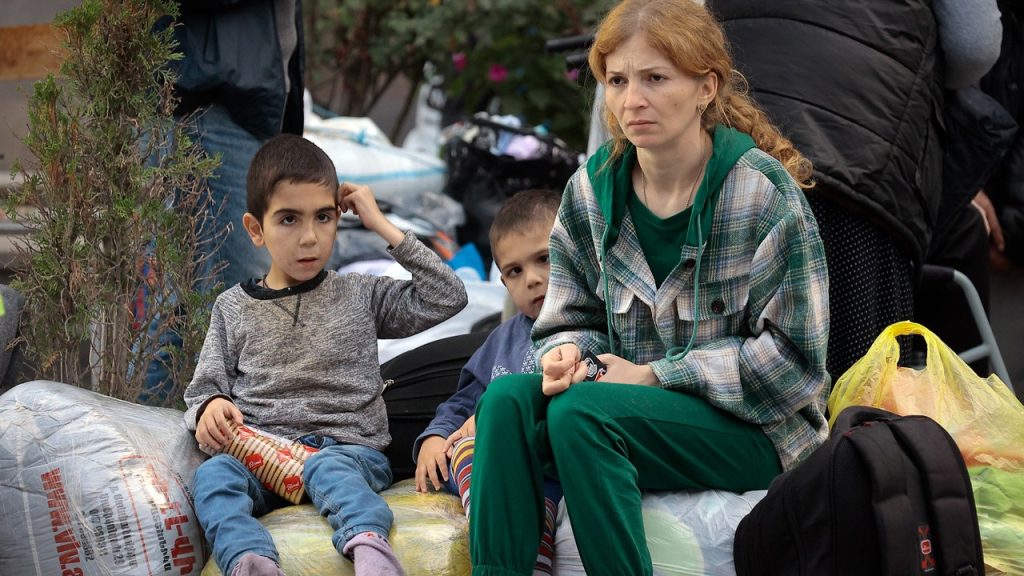The Center for Truth and Justice, a human rights organization representing ethnic Armenians, submitted evidence to the International Criminal Court accusing Azerbaijan of committing an ongoing genocide against them. The neighboring countries have a long history of disputes over the territory of Nagorno-Karabakh, and tensions escalated into a war in 2020 that left thousands dead. Armenia lost control of the region to Azerbaijan, leading to the displacement of over 100,000 ethnic Armenians. The CFTJ argues that top Azerbaijani leaders, including President Ilham Aliyev, should be investigated for genocide based on the evidence they have provided.
The CFTJ submitted a dossier of evidence containing testimony from over 500 victims and witnesses to the International Criminal Court. The gruesome images and videos circulating on social media allegedly show Azerbaijani soldiers committing atrocities, including mutilation and beheadings. The organization aims to hold those responsible for these acts accountable for their actions, urging the court’s chief prosecutor to open a formal investigation into the allegations of genocide. The decision on whether to proceed with an investigation is expected to take several months as the court reviews the evidence presented.
Many legal experts suggest that proving genocide may be challenging for the International Criminal Court due to jurisdictional limitations. While Armenia is a member of the ICC, Azerbaijan is not, which restricts the court’s authority over crimes committed on Azerbaijani territory. However, mass deportations could potentially be categorized as crimes against humanity, falling within the court’s jurisdiction. The situation is further complicated by the fact that Nagorno-Karabakh is internationally recognized as part of Azerbaijan, presenting a complex legal challenge for prosecutors.
The CFTJ’s efforts come amid ongoing legal proceedings between Armenia and Azerbaijan at the International Court of Justice, where both countries have filed cases accusing the other of violating a racial discrimination treaty. The International Court of Justice is conducting hearings related to these cases, highlighting the deep-rooted animosity and unresolved issues between the two nations. The claims of genocide and other human rights abuses are further exacerbating the tensions between Armenia and Azerbaijan, threatening to escalate the conflict and hamper potential diplomatic efforts to resolve the longstanding dispute.
The submission of evidence to the International Criminal Court marks a significant escalation in the legal battle between Armenia and Azerbaijan, as both sides seek justice for alleged atrocities committed during the recent conflict over Nagorno-Karabakh. The plight of ethnic Armenians who were displaced from the region has garnered international attention, with human rights organizations advocating for accountability and justice. The outcome of the court’s decision on whether to open an investigation into the allegations of genocide will have far-reaching implications for the future of the region and the potential for lasting peace between Armenia and Azerbaijan.
The Central for Truth and Justice’s efforts to hold Azerbaijani leaders accountable for alleged genocide reflect a broader push for justice and accountability in conflicts around the world. The international community’s response to these allegations will test the effectiveness of global institutions in addressing grave human rights violations and ensuring justice for victims. The legal battle between Armenia and Azerbaijan at the International Criminal Court and the International Court of Justice underscores the complex legal and political challenges involved in seeking redress for human rights abuses in the context of longstanding conflicts and disputes.


